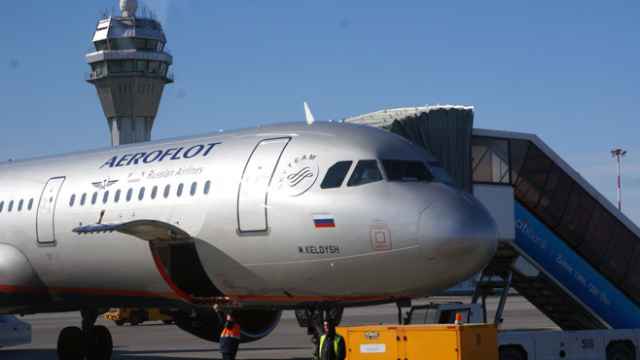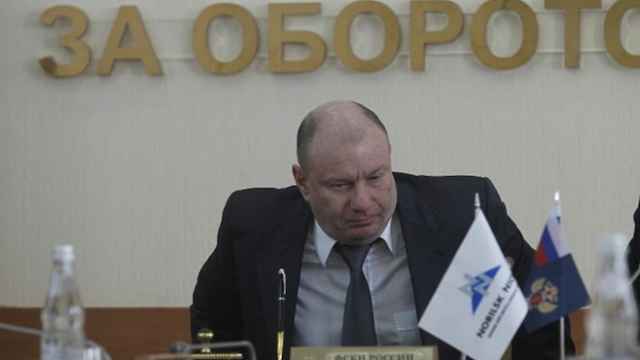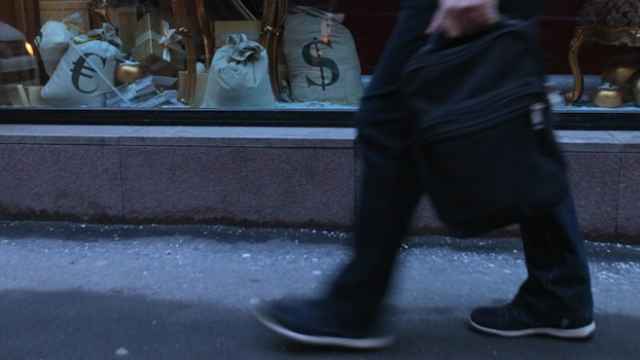DAVOS, Switzerland — Russian fertilizer producer PhosAgro expects two factors underpinning the country's financial crisis — steep declines in the ruble and in oil prices — to help it prosper in coming years.
Chief executive Andrei Guryev also anticipates a spike in global demand for fertilizers, allowing the firm to pencil in sales growth of 25 percent over the next five years as it stays relatively unaffected by the Western sanctions that have hit many Russian banks and energy firms.
"We have entered the crisis in a good shape … We are the most profitable phosphate fertilizer company in the world," Guryev said.
PhosAgro is the world's third-largest producer of phosphate rock, an essential agricultural nutrient. It also sells compound fertilizer, a blend of processed phosphates, nitrogen, potash and often sulphur.
The firm's London-listed stock has outpaced gains in benchmark FTSE 100 over the past year at a time when Russia's dollar-denominated index has plunged 40 percent.
Credit agency Standard & Poor's said last month that PhosAgro's moderate leverage and significant cash balances, and dollar and euro credit lines may mean it keeps the firm at investment grade even if it decides to cut Russia's sovereign rating to junk.
The firm has also benefited from rising selling prices, a trend that Guryev expects to continue.
"For the first time since 2008 we saw an unusual seasonal pattern when phosphate fertilizer prices rose in November-January," he said last week on the sidelines of the World Economic Forum in Davos.
//Russian Bread Basket
Lower oil prices are cutting the energy bills of major oil importers in Asia, including India, meaning they will be able to spend more on agriculture, says Guryev — also raising demand for fertilizer
Large food producers such as Brazil will be able to buy more fuel for tractors and combines or use funds saved on fuel for new investments. In addition, Brazil's worst drought in at least 80 years — eased by some rainfall in the southeast this month — may drive soft commodity prices higher in the second half of 2015.
An expected large corn and soybean crop in the United States would also boost future fertilizer use as growers would have to replenish low soil nutrition levels, says Guryev.
Back at home in Russia, the steep ruble declines have kept the firm's costs low and set it up to expand.
As in recent years, PhosAgro plans to raise output by 4 to 6 percent in 2015, and to invest about $1.4 billion in a new plant and mine expansion by 2017.
It will also increase its dividend in ruble terms, Guryev said.
Russia is one of the world's largest grain exporters, and Guryev says this role will rise over time.
"You wouldn't be able to feed 7 billion people today without using fertilizers So how are you going to do this when the population rises to 9.5 billion by 2050 and demand for soft commodities rises by 60 percent?" he says.
"This problem can be solved only with the full involvement of Russia with its huge territories and availability of water supply."
U.S. investor Jim Rogers, who made his name in the 1970s setting up the Quantum Fund hedge fund with George Soros, joined PhosAgro's board last year.
A Message from The Moscow Times:
Dear readers,
We are facing unprecedented challenges. Russia's Prosecutor General's Office has designated The Moscow Times as an "undesirable" organization, criminalizing our work and putting our staff at risk of prosecution. This follows our earlier unjust labeling as a "foreign agent."
These actions are direct attempts to silence independent journalism in Russia. The authorities claim our work "discredits the decisions of the Russian leadership." We see things differently: we strive to provide accurate, unbiased reporting on Russia.
We, the journalists of The Moscow Times, refuse to be silenced. But to continue our work, we need your help.
Your support, no matter how small, makes a world of difference. If you can, please support us monthly starting from just $2. It's quick to set up, and every contribution makes a significant impact.
By supporting The Moscow Times, you're defending open, independent journalism in the face of repression. Thank you for standing with us.
Remind me later.





